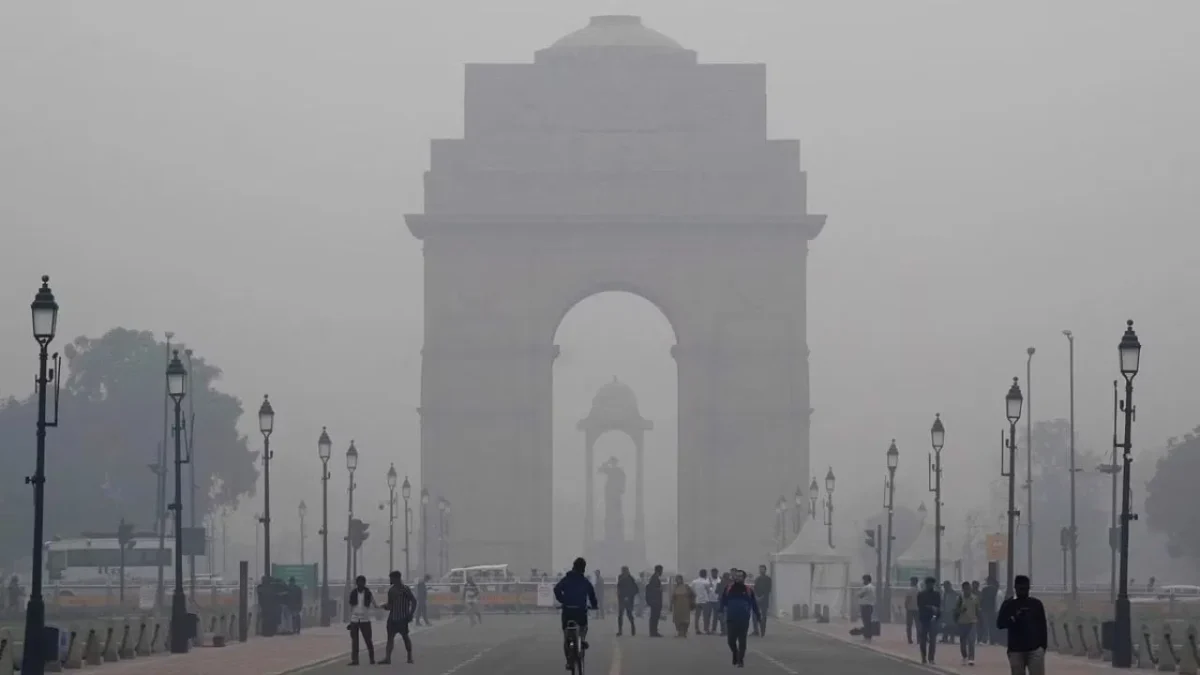Increasing air pollution in Delhi-NCR: Situation serious
Air pollution has once again reached critical levels in Delhi-NCR. In view of increasing pollution GRAP-3 (Graded Response Action Plan) Restrictions have been imposed. These restrictions are imposed as part of strict measures to reduce pollution. This time too, due to the sudden increase in pollution levels, these rules have been strictly implemented in Delhi as well as in Gurugram, Faridabad, Ghaziabad and Gautam Buddha Nagar.
What restrictions have been imposed under Group 3?
1. Complete ban on diesel vehicles
Diesel running vehicles have now been completely banned in Delhi. This will help in reducing air pollution.
2. Hybrid mode in schools
schools up to 5th class hybrid mode Instructions have been given to conduct the same (online and offline) so that small children can be protected from the harmful effects of pollution.
3. Ban on construction work
All kinds construction And demolition (Demolition) work has been banned. However, construction related to essential services has been exempted.
4. 50% capacity in private offices
Private offices in Delhi-NCR have been advised to only 50% employees Work only with. This will reduce traffic and pollution.
Strictness of Supreme Court: Nationwide concern
Pollution is not limited to Delhi only
During the hearing on air pollution, the Supreme Court made it clear that the problem of pollution is not limited to Delhi only. The court has also expressed concern over all other polluted cities of the country. The court said that the message should not be sent that the Supreme Court is hearing only Delhi.
Instructions for presenting data of other cities
The Supreme Court has ordered the Central Government to present the data of all the polluted cities of the country so that appropriate steps can be taken to improve the air quality there.
Supreme Court’s rebuke to Delhi government
During the hearing the Supreme Court Delhi government Reprimanded for not providing information on solid waste disposal. The court said that there is a need to take adequate information and concrete steps to control pollution.
Chief Secretary of Delhi summoned
Supreme Court in the hearing to be held on December 19 Chief Secretary of Delhi Has been ordered to appear in person. This makes it clear that the court does not want to compromise on this issue.
Why was GRAP-3 implemented?
sudden increase in pollution
In Delhi-NCR since last few days Air Quality Index (AQI) Has reached serious category. In such a situation, it became necessary to implement GRAP-3 so that the increasing level of pollution can be stopped.
serious health effects
Air pollution can cause respiratory diseases, asthma, lung problems and other health problems. This situation is especially dangerous for children and the elderly.
Different stages of Grasp: Know the meaning of Grasp-3
GRAPE (Graded Response Action Plan) There are four stages under:
- Grape-1: When AQI is between 201-300 (moderate pollution).
- Grape-2: When AQI is between 301-400 (bad pollution).
- Grape-3: When AQI is between 401-450 (very bad pollution).
- Grape-4: When AQI is above 450 (severe plus pollution).
When Grap-3 is implemented, restrictions like construction, ban on diesel vehicles and hybrid mode in schools are imposed.
Reason for pollution in Delhi-NCR
- Stubble Burning:
- Burning of stubble increases pollution in Punjab, Haryana and Uttar Pradesh.
- Vehicular smoke:
- Pollution level increases due to increase in the number of vehicles in Delhi.
- Construction work:
- Dust blown from construction works is a major cause of pollution.
- Smoke from factories:
- Smoke coming from industries and factories also increases air pollution.
